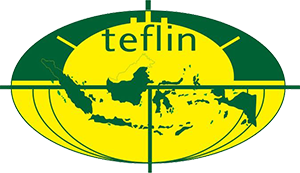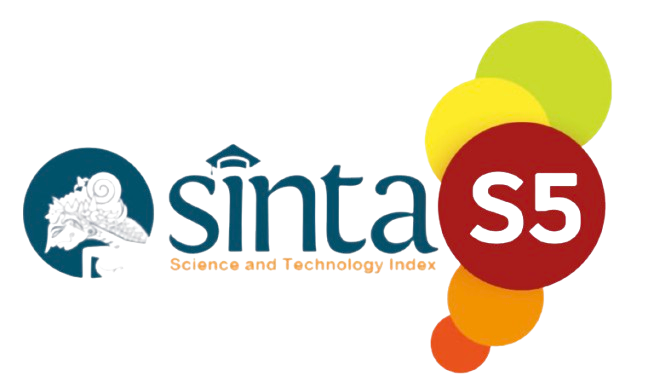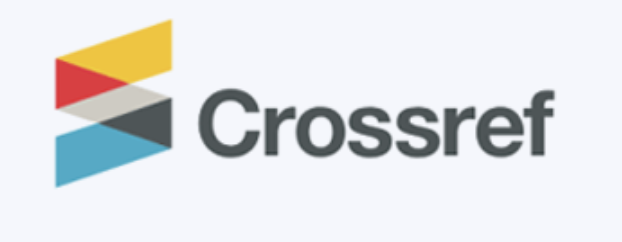Integrating Technology into Problem-Based Learning: A Practical Implementation
DOI:
https://doi.org/10.52217/ijlhe.v8i2.1943Keywords:
Problem Based Learning, Kurikulum Merdeka, Technology Integration, Student ReadinessAbstract
In alignment with the Kurikulum Merdeka, Problem-Based Learning (PBL) has been widely promoted as a strategy to enhance critical thinking, collaboration, and problem-solving skills. The integration of technology into PBL further strengthens its potential by providing multimodal resources and interactive opportunities for learners. However, limited research has examined students’ readiness to participate in technology-enhanced PBL within Indonesian EFL classrooms, creating a gap in understanding the feasibility of its implementation. This study aims to investigate how technology integration is applied in PBL and to evaluate students’ readiness to engage in this approach. An exploratory sequential mixed-methods design was employed. Participants included one English teacher and ninety-seven tenth-grade students from three classes. Instruments consisted of observation sheets, field notes, and a readiness questionnaire adapted from Dalton and Gottlieb’s framework. Data collection began with classroom observations to identify teacher practices, followed by the administration of the questionnaire to measure student readiness. Qualitative data were analyzed using Miles and Huberman’s model, while quantitative data were analyzed descriptively. The findings revealed that the teacher successfully integrated videos and PowerPoint slides across PBL stages, supporting contextual understanding and engagement. Nevertheless, students demonstrated only moderate readiness across effort, willingness, and technological capacity.
References
Aravantinos, S., Lavidas, K., Voulgari, I., Papadakis, S., Karalis, T., & Komis, V. (2024). Educational approaches with AI in primary school settings: A systematic review of the literature available in Scopus. Education Sciences, 14(7), 744. https://doi.org/10.3390/educsci14070744
Clyde, W., & Delohery, A. (2005). Using technology in teaching. Yale University Press. https://doi.org/10.12987/9780300133325
Dalton, C. C., & Gottlieb, L. N. (2003). The concept of readiness to change. Journal of Advanced Nursing, 42(2), 108–117. https://doi.org/10.1046/j.1365-2648.2003.02593.x
Dalton, C. C., & Gottlieb, L. N. (2003). The concept of readiness to change. Journal of Advanced Nursing, 42(2), 108–117. https://doi.org/10.1046/j.1365-2648.2003.02593.x
Drolia, M., Sifaki, E., Papadakis, S., & Kalogiannakis, M. (2020). An overview of mobile learning for refugee students: Juxtaposing refugee needs with mobile applications’ characteristics. Challenges, 11(2), 31. https://doi.org/10.3390/challe11020031
Ferreira, M. M., & Trudel, A. R. (2012). The impact of problem-based learning (PBL) on student attitudes toward science, problem-solving skills, and sense of community in the classroom. Journal of Classroom Interaction, 47(1), 23–30. https://eric.ed.gov/?id=EJ974653
Ilwandri, Rahman, A., Santosa, T. A., Zulkifli, Suharyat, Y., & Suhaimi. (2023). The effect of problem-based learning–STEM on students’ 21st-century skills in Indonesia: A meta-analysis. LITERACY: International Scientific Journals of Social, Education, Humanities, 2(1), 151–162. https://doi.org/10.56910/literacy.v2i1.550
Istiara, F., & Hastomo, T. (2023). Exploring lecturers and administrative staffs’ strategies to hone EFL students’ digital literacy. JOALL (Journal of Applied Linguistics and Literature), 8(1), 151–172. https://doi.org/10.33369/joall.v8i1.25568
Lavidas, K., Voulgari, I., Papadakis, S., Athanassopoulos, S., Anastasiou, A., Filippidi, A., Komis, V., & Karacapilidis, N. (2024). Determinants of humanities and social sciences students’ intentions to use artificial intelligence applications for academic purposes. Information, 15(6), 314. https://doi.org/10.3390/info15060314
Liu, M., Shi, Y., Pan, Z., Li, C. L., Pan, X., & Lopez, F. (2021). Examining middle school teachers’ implementation of a technology-enriched problem-based learning program: Motivational factors, challenges, and strategies. Journal of Research on Technology in Education. Advance online publication. https://doi.org/10.1080/15391523.2020.1768183
Mandasari, B., Basthomi, Y., Hastomo, T., Afrianto, Hamzah, I., & Aminatun, D. (2025). The snapshots of Indonesian pre-service English teachers’ perspectives on integrating technology-based tools to rural schools. Voices of English Language Education Society, 9(1), 42–57. https://doi.org/10.29408/veles.v9i1.27965
Miles, M. B., & Huberman, A. M. (1994). Qualitative data analysis: An expanded sourcebook (2nd ed.). Sage Publications.
Papadakis, S., Kiv, A. E., Kravtsov, H., Osadchyi, V. V., Marienko, M. V., Pinchuk, O. P., & Semerikov, S. O. (2023). Revolutionizing education: Using computer simulation and cloud-based smart technology to facilitate successful open learning. In Joint proceedings of the 10th Illia O. Teplytskyi Workshop on Computer Simulation in Education, and Workshop on Cloud-based Smart Technologies for Open Education (CoSinEi and CSTOE 2022) co-located with ACNS Conference on Cloud and Immersive Technologies (No. 3358, pp. 1–18). CEUR Workshop Proceedings. http://ds.knu.edu.ua/jspui/handle/123456789/5086
Suryani, A., Setiawan, I., Muhdar, S., & Oktaviani, F. S. (2024). The comparison of effectiveness of PjBL and PBL models on students’ cognitive learning outcomes. Al-Ishlah: Jurnal Pendidikan, 16(1), 194–207. https://doi.org/10.35445/alishlah.v16i1.4094
Sutiyono, A., Hastomo, T., & Tanod, M. J. (2022). Educators’ perception towards early childhood education in technology integration: A case study. Jurnal Obsesi: Jurnal Pendidikan Anak Usia Dini, 6(6), 7323–7333. https://doi.org/10.31004/obsesi.v6i6.3837
Suwastini, N. K. A., Puspawati, N. W. N., Adnyani, N. L. P. S., Dantes, G. R., & Rusnalasari, Z. D. (2021). Problem-based learning and 21st-century skills: Are they compatible? EduLite: Journal of English Education, Literature and Culture, 6(2), 326–340. https://doi.org/10.30659/e.6.2.326-340
Talandron-Felipe, M. M. P. (2019). The role of technology identity among students in rural areas using a web-based tutoring system. In Proceedings of the 27th International Conference on Computers in Education (ICCE 2019) (pp. 194–196). https://doi.org/10.58459/icce.2019.309














